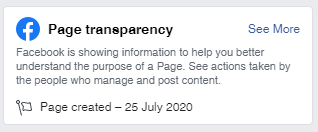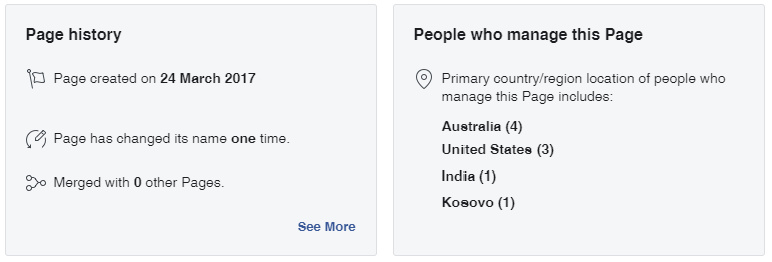If you’ve seen a Facebook or Google ad promising amazing solar returns or zero deposit solar, you may have been tempted to sign up on the spot. Unfortunately, not all offers and products are equal, and you can easily end up with a solar system that doesn’t cover your power bills, and ends up costing you money within a year or two.
To make your decision easier, we’ve put together a list of ways to tell if a company might not be the best choice, based on a few key indicators you can find on any solar company’s Facebook page.
Reviews
Facebook offers businesses the option to allow reviews from customers. The good news is that this is a good indication of the company’s reputation; the bad news is that these reviews can be turned off. If a large company doesn’t list reviews on their page, it can be an indication that they have received a large number of negative reviews. Reviews are shown on the top right of a page on PC, or in the reviews tab. If a company has made the decision to turn off Facebook reviews, Google reviews are a great place to find legitimate experiences by solar company customers. Unlike Facebook reviews, Google reviews can’t be turned off.
Negative Emojis
Although Facebook doesn’t offer an unlike button, it does offer the next best thing; laugh and angry reactions. One thing that can’t be blocked on Facebook is likes, and reactions, to a post. Sometimes a company’s Facebook posts have a relatively high percentage of laughing or angry reactions on a post that wouldn’t normally be considered funny or controversial. This is a good indication that users who’ve been blocked or hidden are reacting in the only way they can; by being angry at the company or laughing at their claims.

Hidden Comments
Facebook business owners have the option to hide comments they don’t like on their page. Fortunately, these are usually easy to identify because the numbers and the actual comments don’t add up. If a page lists a post as having 15 replies but you can only see two comments, there’s a good chance 13 comments have been hidden. More often than not, hidden comments are an indication of negative feedback.
Page Creation Date
Facebook has helpfully added some great page transparency features over the last few years. When you visit a Facebook page on a PC, you can scroll down and click ‘See More’ in a section called Page Transparency. Inside is a tab called Page history. In this section you can see the date and year the page was created.
If the page is relatively new, it may indicate that the business isn’t long established and may not necessarily be around to fulfil warranty obligations and maintenance needs over the life of your solar system.

Page Name History
Another useful piece of information in the Page Transparency section is the history of the page’s name. Listed in the Page History tab will be a list of any name changes the page has undergone, as well as any other business pages that have been merged with this page. If the page has a history of using alternate names, it may be an indication you’re dealing with a solar phoenix company.
Page Manager Country
Yet another interesting piece of information you’ll find in the Page Transparency section is the country of the people who manage the page. You can easily see how many page administrators are based in other countries, such as India or the United States. Although some companies do outsource work, overseas page administrators can indicate that the solar company is primarily foreign run and may not necessarily meet all the required Australian standards.
Facebook Ads
Last but not least, you can view all the adverts run by a page. At the bottom of the Page Transparency section, you’ll see a link titled ‘Go To Ad Library’. By clicking this link, you’ll be able to see all the Facebook advertisements the company page is running. This can be a good indication of the general quality, price range, and selling tactics of the company. The ACCC and CEC have rules around the types of advertising offers that can be made to consumers, so checking a company’s Facebook adverts can indicate if those rules are being broken. Making false claims or promising certain deals, rebates and discounts can sometimes break these rules.

This list should give you a place to start when it comes to identifying companies that may be more interested in your wallet than your energy savings. Like with any investment, we recommend doing your due diligence and making sure you’re aware of the hidden costs of cheap solar.
If you have any questions about how solar works and how to choose a quality product that gives you long lasting returns, you can leave us a comment below or contact us directly.


